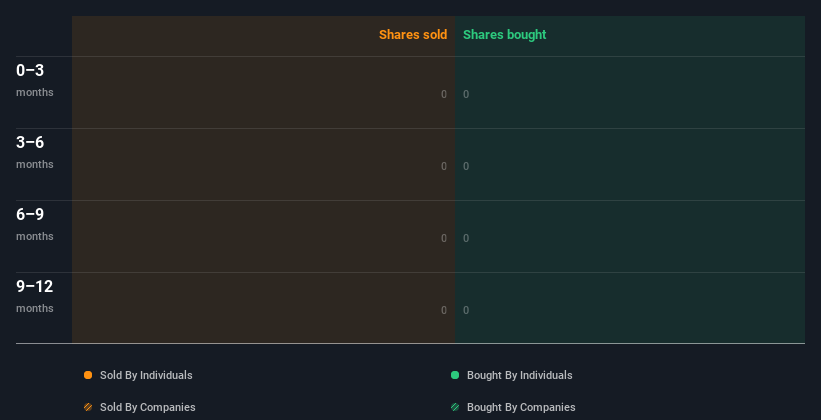Gim Lian Chung Spends S$638k Buying Raffles Education Shares
Potential Raffles Education Limited (SGX:NR7) shareholders may wish to note that insider Gim Lian Chung recently bought S$638k worth of stock, paying S$0.046 for each share. While that's a very decent purchase to our minds, it was proportionally a bit modest, boosting their holding by just 8.8%.
See our latest analysis for Raffles Education
The Last 12 Months Of Insider Transactions At Raffles Education
In fact, the recent purchase by Gim Lian Chung was the biggest purchase of Raffles Education shares made by an insider individual in the last twelve months, according to our records. So it's clear an insider wanted to buy, even at a higher price than the current share price (being S$0.045). While their view may have changed since the purchase was made, this does at least suggest they have had confidence in the company's future. In our view, the price an insider pays for shares is very important. Generally speaking, it catches our eye when insiders have purchased shares at above current prices, as it suggests they believed the shares were worth buying, even at a higher price.
While Raffles Education insiders bought shares during the last year, they didn't sell. You can see a visual depiction of insider transactions (by companies and individuals) over the last 12 months, below. If you want to know exactly who sold, for how much, and when, simply click on the graph below!
There are plenty of other companies that have insiders buying up shares. You probably do not want to miss this free list of growing companies that insiders are buying.
Insider Ownership
Another way to test the alignment between the leaders of a company and other shareholders is to look at how many shares they own. I reckon it's a good sign if insiders own a significant number of shares in the company. It's great to see that Raffles Education insiders own 57% of the company, worth about S$36m. Most shareholders would be happy to see this sort of insider ownership, since it suggests that management incentives are well aligned with other shareholders.
So What Does This Data Suggest About Raffles Education Insiders?
It's certainly positive to see the recent insider purchases. We also take confidence from the longer term picture of insider transactions. But on the other hand, the company made a loss during the last year, which makes us a little cautious. Once you factor in the high insider ownership, it certainly seems like insiders are positive about Raffles Education. That's what I like to see! So while it's helpful to know what insiders are doing in terms of buying or selling, it's also helpful to know the risks that a particular company is facing. To help with this, we've discovered 2 warning signs (1 is significant!) that you ought to be aware of before buying any shares in Raffles Education.
If you would prefer to check out another company -- one with potentially superior financials -- then do not miss this free list of interesting companies, that have HIGH return on equity and low debt.
For the purposes of this article, insiders are those individuals who report their transactions to the relevant regulatory body. We currently account for open market transactions and private dispositions of direct interests only, but not derivative transactions or indirect interests.
Have feedback on this article? Concerned about the content? Get in touch with us directly. Alternatively, email editorial-team (at) simplywallst.com.
This article by Simply Wall St is general in nature. We provide commentary based on historical data and analyst forecasts only using an unbiased methodology and our articles are not intended to be financial advice. It does not constitute a recommendation to buy or sell any stock, and does not take account of your objectives, or your financial situation. We aim to bring you long-term focused analysis driven by fundamental data. Note that our analysis may not factor in the latest price-sensitive company announcements or qualitative material. Simply Wall St has no position in any stocks mentioned.

 Yahoo Finance
Yahoo Finance 
